-
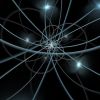 +26 +1
+26 +1Gravity experiments on the kitchen table: why a tiny, tiny measurement may be a big leap forward for physics
A new measurement of gravity at small scales hints at an alternative to billion-dollar experiments for the future of physics.
-
 +13 +1
+13 +1What gravitational waves can say about dark matter
In 1916, Albert Einstein published his theory of general relativity, which established the modern view of gravity as a warping of the fabric of spacetime. The theory predicted that objects that interact with gravity could disturb that fabric, sending ripples across it. Any object that interacts with gravity can create gravitational waves. But only the most catastrophic cosmic events make gravitational waves powerful enough for us to detect.
-
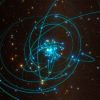 +11 +1
+11 +1A star orbiting a black hole shows Einstein got gravity right — again
A single star, careening around the monster black hole in the center of the Milky Way, has provided astronomers with new proof that Albert Einstein was right about gravity. More than 100 years ago, Einstein’s general theory of relativity revealed that gravity is the result of matter curving the fabric of spacetime (SN: 10/17/15, p. 16). Now, in a paper published July 26 in Astronomy & Astrophysics, a team of researchers reports the observation of a hallmark of general relativity known as gravitational redshift.
-
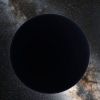 +20 +1
+20 +1Is Planet Nine Even Real?
A year and a half after it was proposed, astronomers are still debating whether the giant mystery planet actually exists. By Ramin Skibba.
-
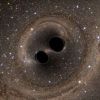 +18 +1
+18 +1Gravitational waves could shed light on the origin of black holes
A new study published in Physical Review Letters outlines how scientists could use gravitational wave experiments to test the existence of primordial black holes, gravity wells formed just moments after the Big Bang that some scientists have posited could be an explanation for dark matter. By Kevin Stacey. (Nov. 30, 2017)
-
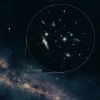 +17 +1
+17 +1Hidden Supercluster Could Solve Milky Way Mystery
Astronomers generally stay away from the “Zone of Avoidance.” When one astronomer didn’t, she found a giant cosmic structure that could help explain why our galaxy moves so fast. By Liz Kruesi.
-
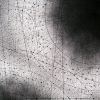 +12 +1
+12 +1How Fuzzballs Solve the Black Hole Firewall Paradox
By replacing black holes with fuzzballs — dense, star-like objects from string theory — researchers think they can avoid some knotty paradoxes at the edge of physics. By Jennifer Ouellette.
-
 +14 +1
+14 +1How to Solve the Biggest Mystery in Physics
Reductionism breaks the world into elementary building blocks. Emergence finds the simple laws that arise out of complexity. These two complementary ways of viewing the universe come together in modern theories of quantum gravity. By Robbert Dijkgraaf.
-
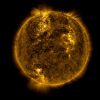 +9 +1
+9 +1Sun’s gravity could power interstellar video streaming
Need to send a message across interstellar space? Use the sun for a signal boost. A new proposal suggests that the sun’s gravity could be used to amplify signals from an interstellar space probe, allowing video to be streamed from as far away as Alpha Centauri. Better still, the technology to do it has already been invented.
-
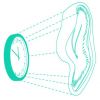 +4 +1
+4 +1Quantum Gravity’s Time Problem
The effort to unify quantum mechanics and general relativity means reconciling totally different notions of time. By Natalie Wolchover. (Dec. 12, 2016)
-
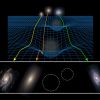 +7 +1
+7 +1Verlinde's new theory of gravity passes first test
A team led by astronomer Margot Brouwer has tested the new theory of theoretical physicist Erik Verlindefor the first time through the lensing effect of gravity. Brouwer and her team measured the distribution of gravity around more than 33,000 galaxies to put Verlinde’s prediction to the test. She concludes that Verlinde’s theory agrees well with the measured gravity distribution.
-
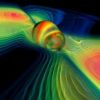 +6 +1
+6 +1LIGO Black Hole Echoes Hint at General Relativity Breakdown
Gravitational wave data show tentative signs of firewalls or other exotic physics By Zeeya Merali.
-
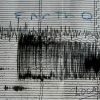 +23 +1
+23 +1Earth’s gravity offers earlier earthquake warnings
Tiny gravity changes can be picked up much faster than seismic waves. By Katherine Lindemann. (Nov. 22, 2016)
-
 +18 +1
+18 +1Remarkable New Theory Says There’s No Gravity, No Dark Matter, and Einstein Was Wrong
A theoretical physicist proposes a new way to think about gravity and dark matter. By Paul Ratner,
-
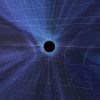 +25 +1
+25 +1New Theory of the Higgs Boson Could Explain Why Gravity Is So Weak
A new theory suggests that missing extra copies of the Higgs boson might explain why gravity is so much weaker than it should be.
-
 +27 +1
+27 +1Ghost particles may explain why gravity is so surprisingly weak
Gravity is weaker than it should be – a new theory suggests that’s because the universe is full of invisible particle families which ignore each other.
-
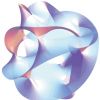 +16 +1
+16 +1Dimensional Reduction: the key to physics’ greatest mystery?
Could the secret to understanding gravity be held in reducing, not increasing, the number of dimensions? By Sabine Hossenfelder
Submit a link
Start a discussion




















